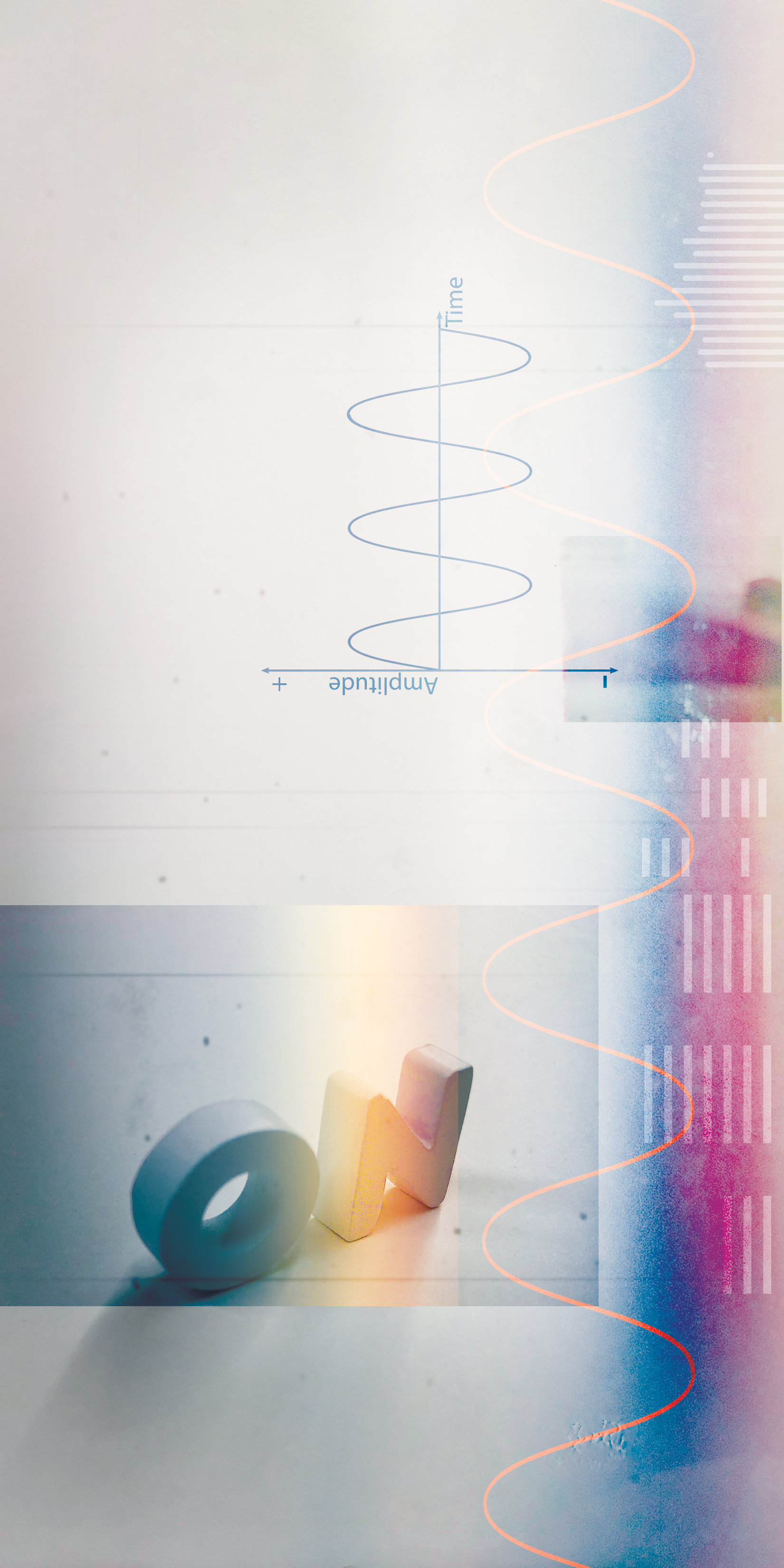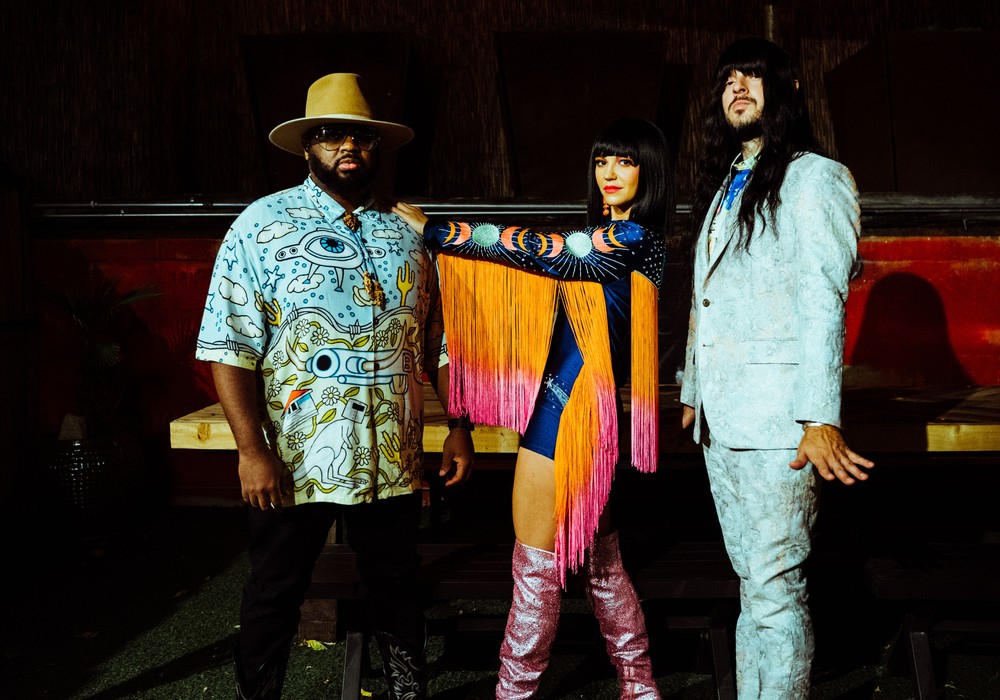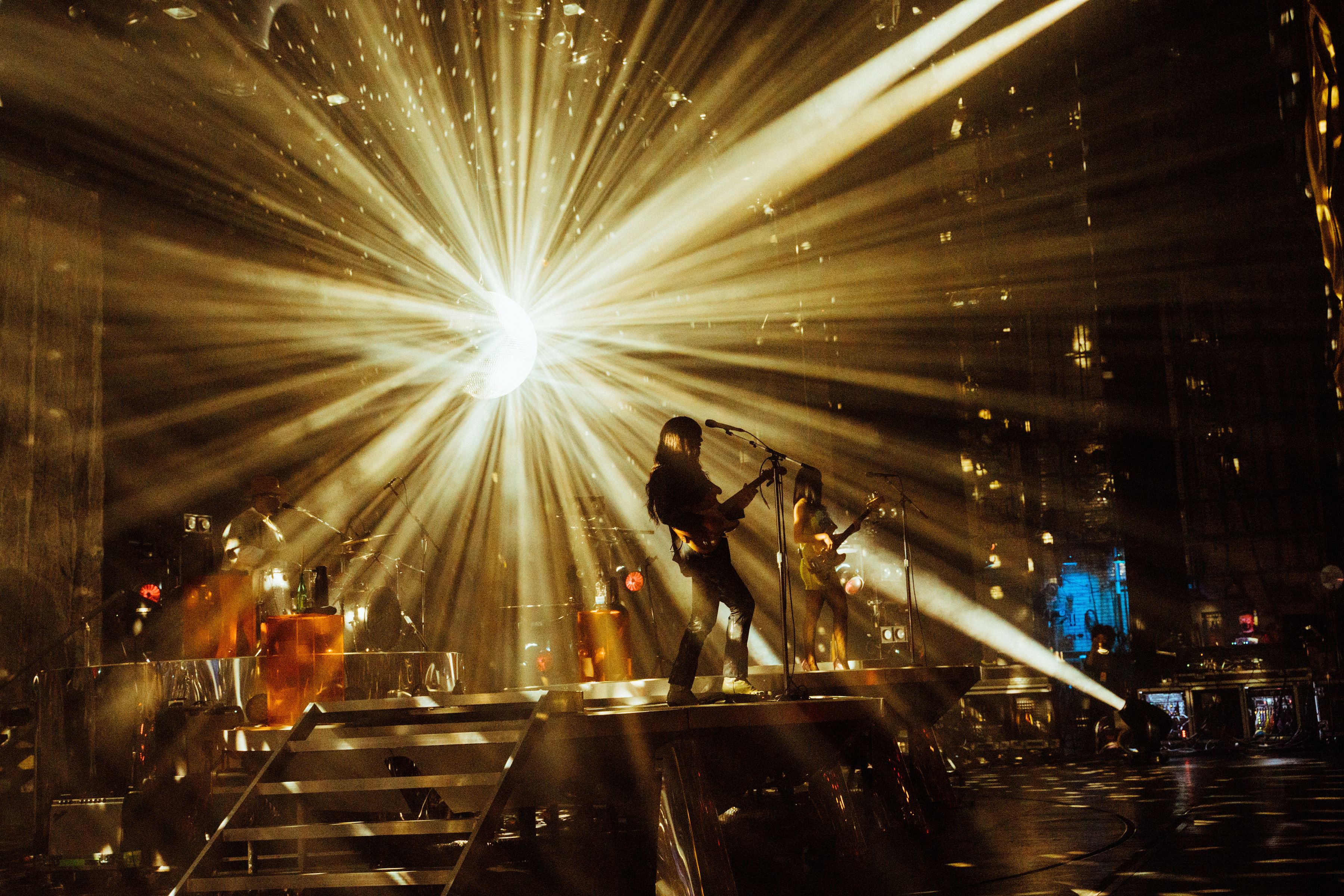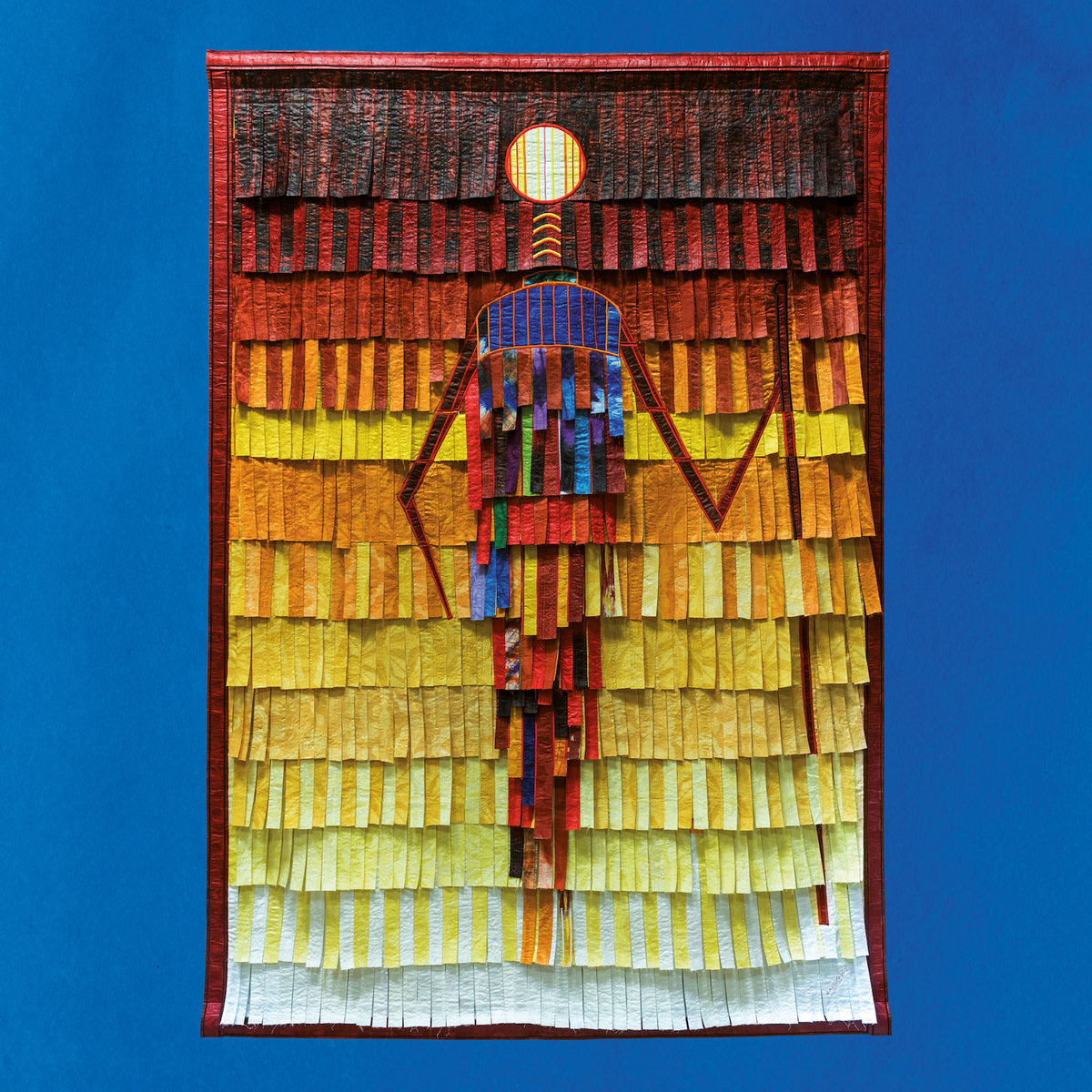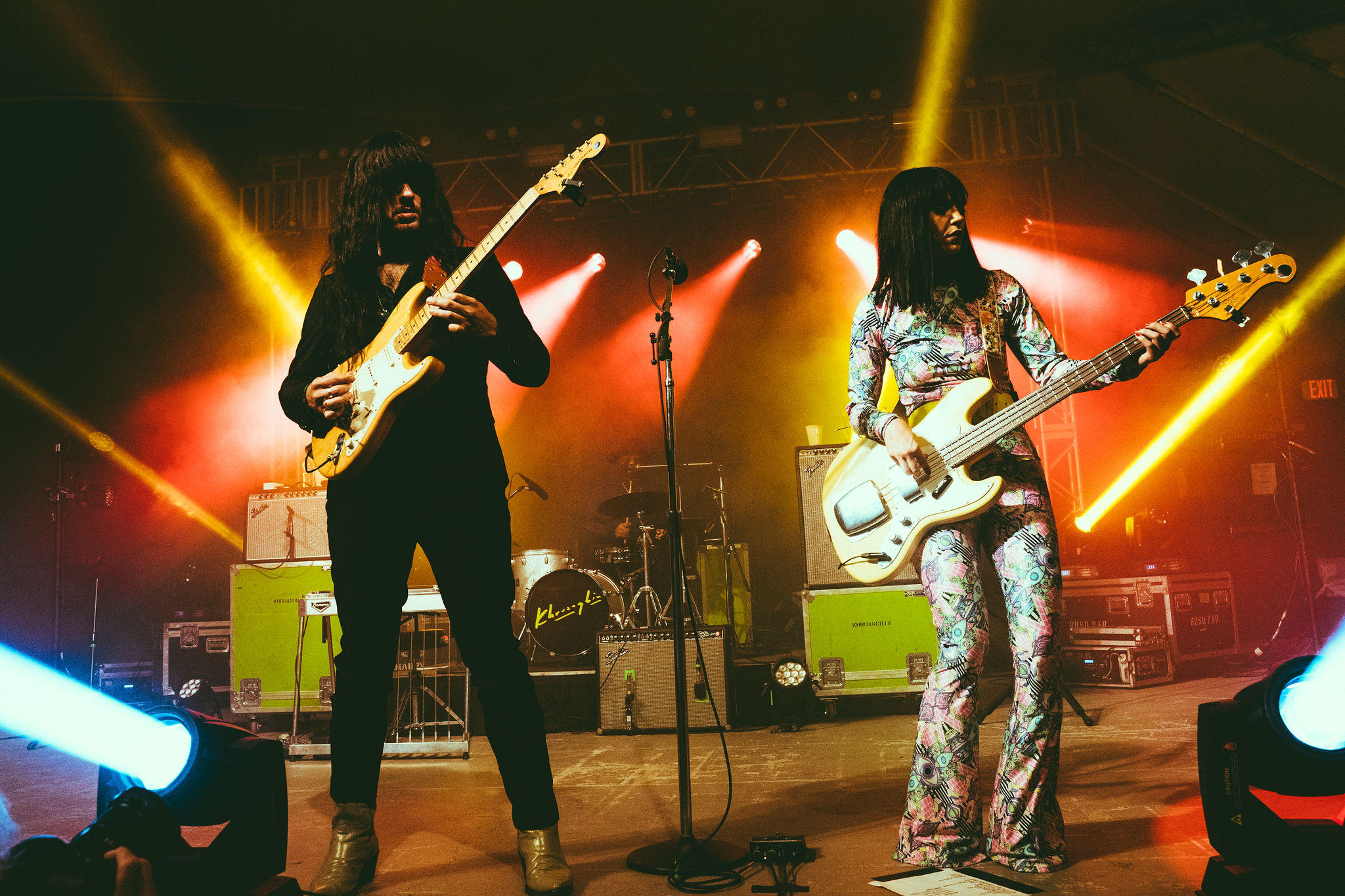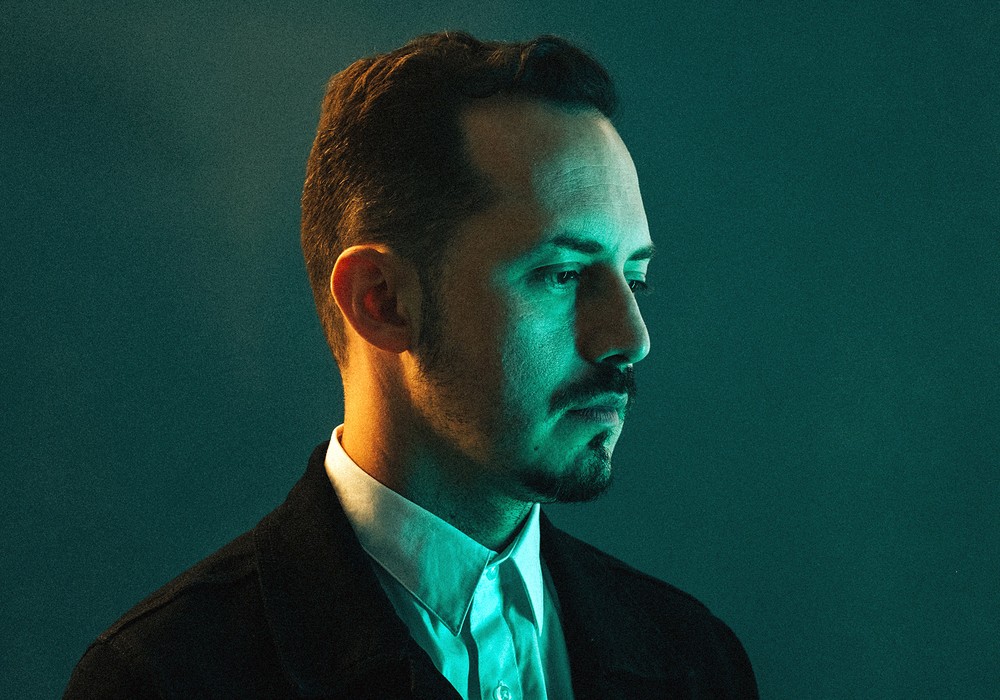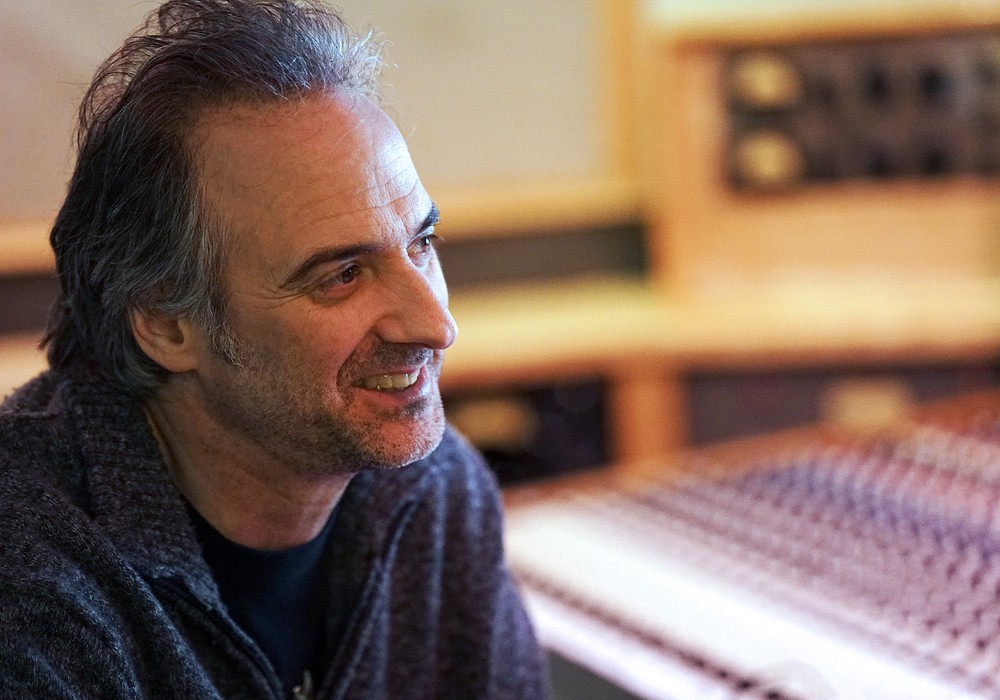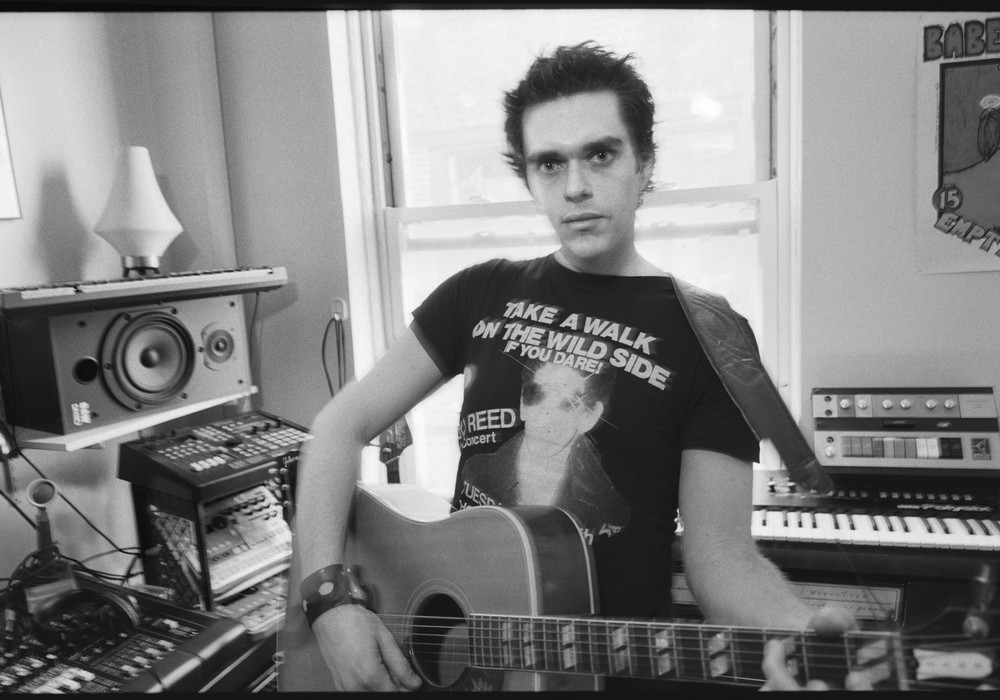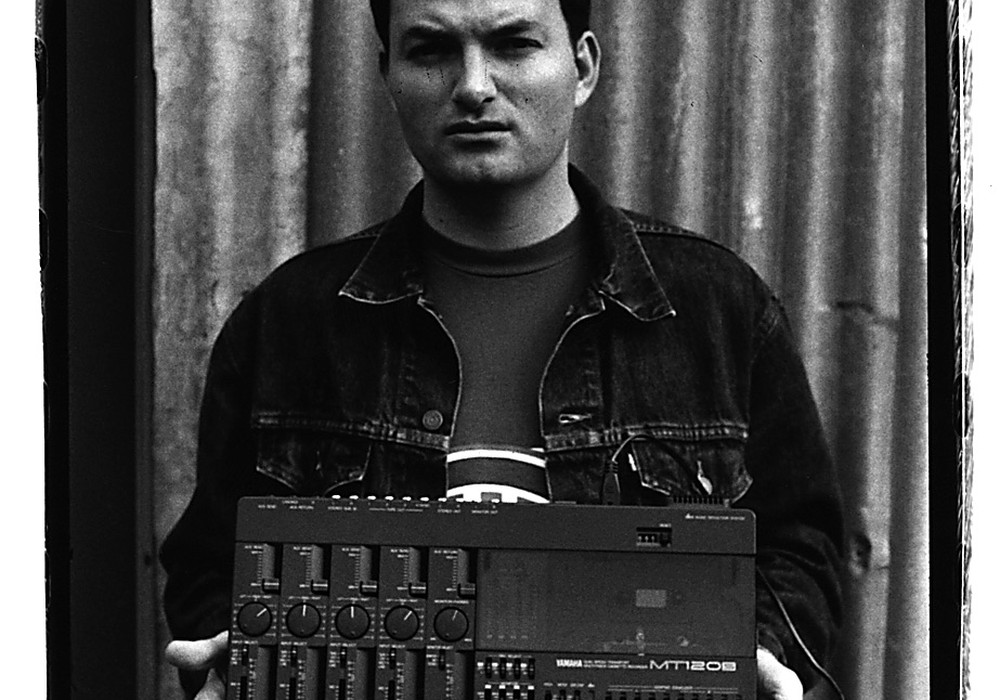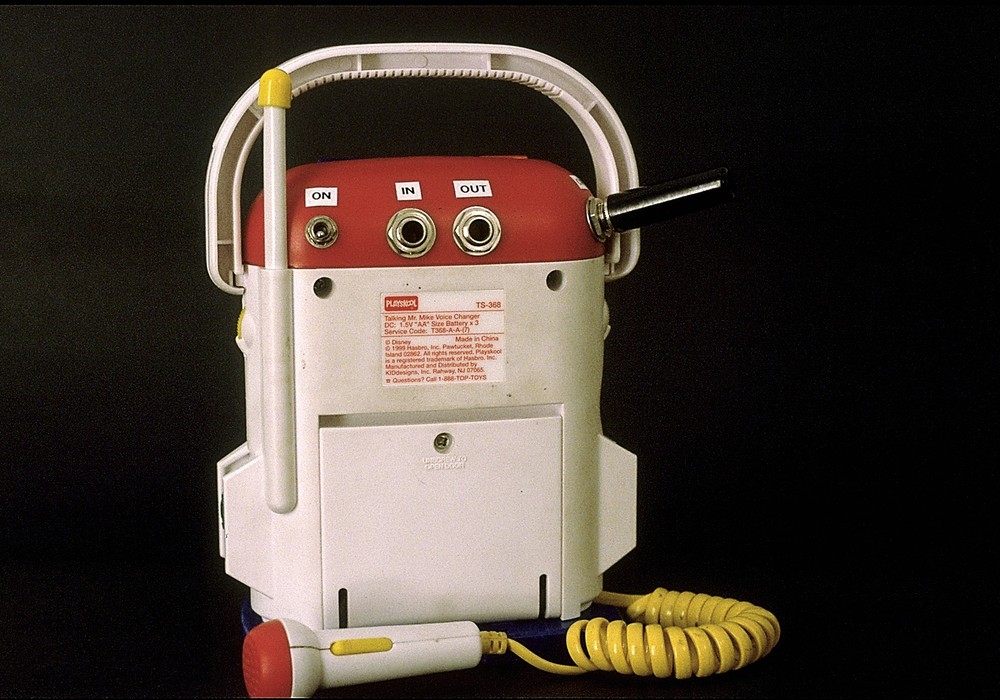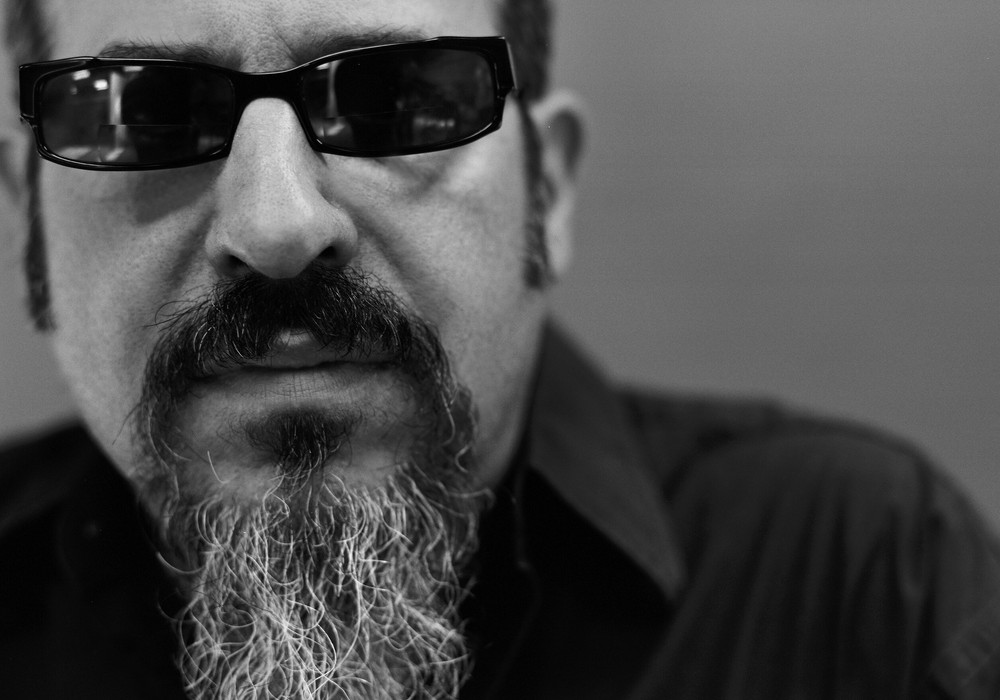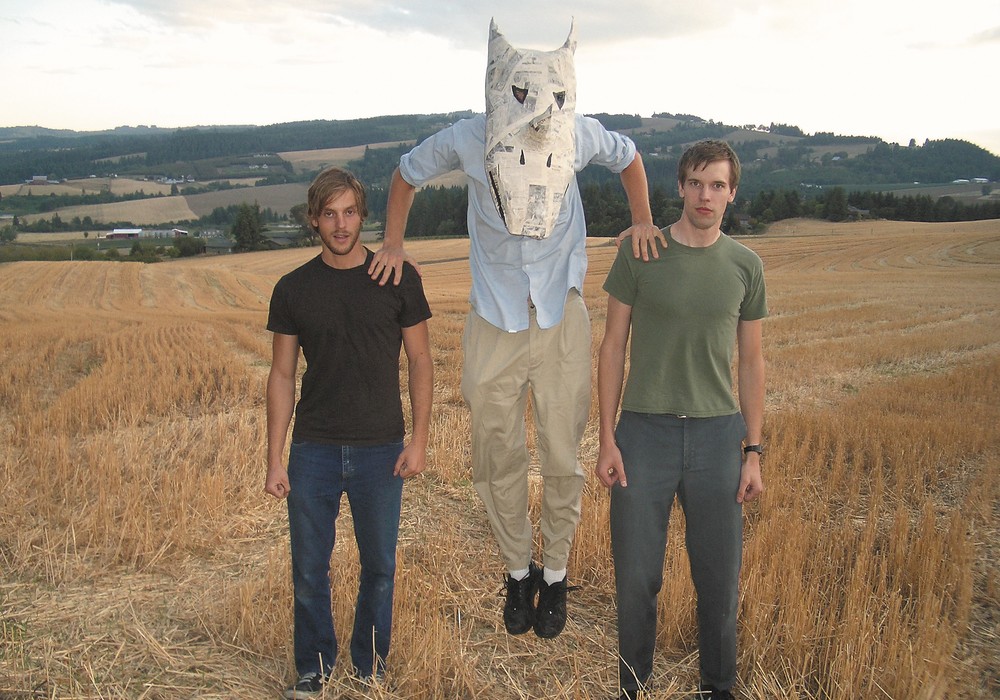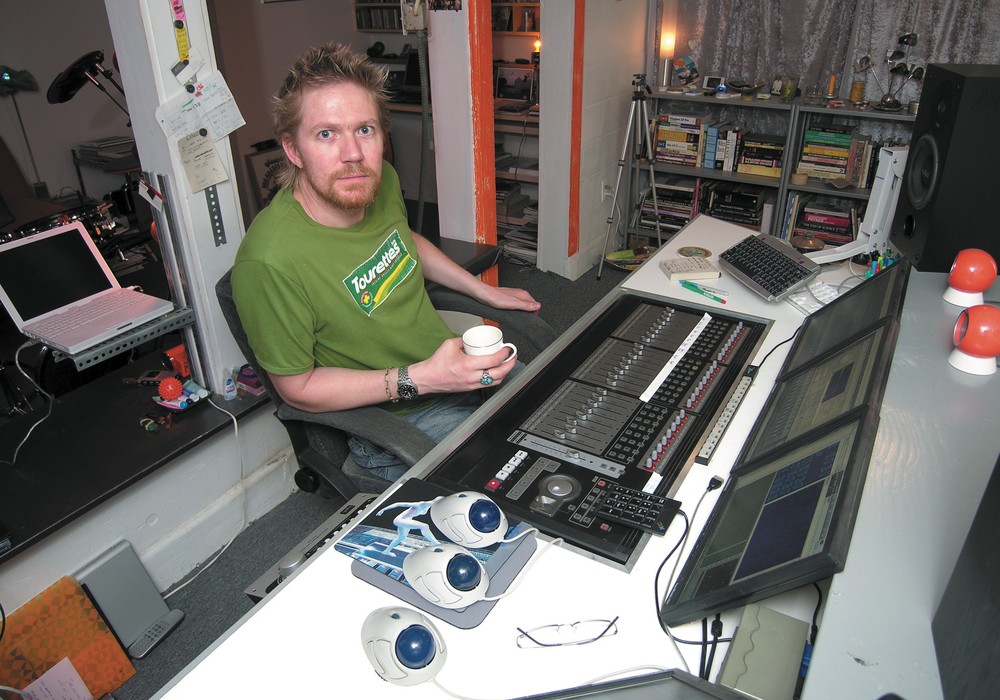This interview originally ran as a podcast in December of 2022. Since that time the band has released a new album, A La Sala.
Texas trio Khruangbin have paired with Malian guitarist Vieux Farka Touré, son of the legendary Ali Farka Touré, for new release Ali. The result is an otherworldly, reverb soaked trance offering, perfect for a drive through the African desert or a stretch of Texas highway. Geoff Stanfield caught up with guitarist Mark Speer and engineer Steve Christensen to discuss the partnership and recording of the album. Enjoy!
Welcome to the chat!
Mark Speer: Yay.
Steve Christensen: It's a hotline.
Yeah, exactly.
MS: Tape Op podcast! I can't believe it. It's so exciting.
What drew you to instrumental music? I know you have [guest] vocalists, like Leon Bridges, and you guys sing as well, but the foundation of Khruangbin is an instrumental band.
MS: I think part of the reason why I wanted to do an instrumental band is because I didn't want to sing. [laughter] I have sung in bands before, and I don't really like it. I don't really dig that vibe. Either you're standalone singer, and all eyes are on you or you're a singer and you're playing an instrument, which means that you are stuck standing behind a mic unless you do the whole Britney Spears mic thing so you can move around. I also liked how no instrumental bands are pop stars. So that means I'll never have to be a pop star, and that's great. But, one of the reasons I got into it is because I was studying and I loved having music on, but I didn't want to have music with words that would distract me from the thing I'm reading. So, I'll either listen to instrumental music, of which there's a lot of… dub or classical music or anything like that, but also a lot of jazz. Also, listening to music from other countries where they're singing, but they're in a language I can't understand, so they're not distracting to me.
The approach is ultimately different in some ways, but you're telling stories, but with sound and tone.
MS: Let's say you title a song something because it's just instrumental, right? So, there's no words. You got to give it some kind of title that they can't just be called “untitled one”, “untitled two”. But, if you give it a title, then the listener has those words rolling around in their head. And when you start doing these narrative melodic themes, then they can come up with their own story. It leaves it open for interpretation. I like lyrics that aren't really specific. If we're going to talk about actual words. I like having those things open to interpretation.
How about you, Steve. What’s your approach to marrying the tonality to the sentiment?
SC: It's interesting because the titles come later, the narrative building comes later, which is really awesome to see come together after the fact. But capturing it, it's just like recording a vocalist or something like that where I'm just putting a goddamn mic on Mark's amp. He's singing. He's doing all the emotion and the dynamics and the melody and everything through all that subtlety of his guitar playing, and all the intangible things about the band playing together. So, when you listen back, it's just a beautiful sound. It might be some weird, minor-y, sad sounding, slow song and that conveys that emotion. Things like reverb choices, delays, and stuff like that come into play later to enhance that sound. But, just as far as the capture goes, it's just putting microphones near them, and they make the beautiful sounds themselves. I just make sure they don't get hangry.
I think that's a bit of a downplaying of your role as “producer” or “engineer.” If your approach is that everybody's stuck in a different room and the sight lines suck, and they're in a dry, dead room, that's way different than putting a band in the room where they can see each other and play off each other and there's bleed.
SC: Without a doubt. They're a band that has to play together. Everything has to happen at the same time. We can get into overdubs and things on top of the initial song, but the foundation of the song; the drums, bass and guitar happen live at the same time. And, they are close together in a circle looking at each other. For most of the recordings, it all has happened in their barn out in the hill country of Texas, which is a beautiful environment, but it's a barn with a dirt floor, so there's bleed. There is no control. We did a few recording sessions in the studio I had at one time with low ceilings, and it was what you would think of as a more “conventional" studio, and that was not nearly as fun. We need high ceilings. We need a big open room. There is something about that that is conducive to their workflow and their vibe.
MS: Do you remember when we recorded in that space and we were mixing it? I was like, “Man, you know what we're missing is the barn.”
SC: We're missing the barn!
MS: So, I went out to the barn, and I had my recorder. I clapped my hands in the barn and then I took that and turned it into an impulse response. Then we started running everything through that during mixing.
SC: Without a doubt. It's all those intangible things that the band just does on their own. Mark and I both love records of a certain time period, that were recorded with certain techniques. I'm not the guy that's going to put a stereo pair of [AKG] 414’s over the drum kit and, and things like that. It's all dynamic mics. Everything's recorded in mono and presented in mono. There's very little stereo capture of anything. Things like that give you that feeling of a certain time period when you listen to it.
I often listen to your records as “ambient” music. I can be writing, I can be doing construction or wiring the studio. But one of the things that, that I was thinking about this morning was something I like in general, but especially your band, is that there is so much space. When you talk about the barn and saying, “We're missing the barn.” It's like an extra member of the band… that amount of space.
MS: It is. Yeah. I think so.
SC: Definitely.
MS: When you're out there, it has its own sonic thumbprint. In a traditional studio, there’s no sound coming in from the outside. And if there was sound coming in from the outside, you're in a city. So, you’ve got like, rumbly trucks and, alarms, police cars, and whistle tips and whatnot.
But in the barn, out in the country, the only sound you get is going to be like a hawk or some birds or some bugs, and some wind going through the grass. Those are really, really nice sounds. I like those sounds a lot. I don't really want to get rid of those. I'm not going to go back and be like, “Oh man, this wind went through this grass thing right here. We’ve got to edit that out.” Whereas if we were doing this in the city we’d be like, “Take just got ruined. Had a loud-ass car come by. We've got to do that one again.”
Yeah.
MS: And, when you're thinking about music in that way, you're in the barn. There are all these other beautiful sounds happening. You don't feel the need to fill up every single moment with a note, or a chord or whatever. I feel like when you're in a pristine, dead studio, then you have this unconscious desire to fill up every single empty space with music.
Reverb is a big part of your sound, and that takes up a lot of space as well.
MS: It does. I use it quite a bit. It's not something I'm going to turn off, but there are varying degrees to how much I'm going to use. That comes from music I listen to, where the reverb is like, there's like ways of doing it organically, right? When you talk about music from say, the desert of Afghanistan, you use an instrument called a rubab. This instrument has sympathetic strings, not unlike a sitar. But, it's the sound of the desert. This is the instrument, and it has this built-in reverb on it. What maniac would decide to cut those strings or make it so it doesn't do that, because that's its voice?
Right.
MS: I love that kind of stuff. I love when you go into a space and you sing a note in like a racquetball court, or in an old church or whatever and it rings in a certain way.
Especially long reverbs, the moment where you're listening to nothing, except for the decay, is just reflection time. I think that utilizes reverb in a musical way, as part of the composition.
MS: I think so. I also like mechanical ones. Like actual spaces or things that you create to do that. Sympathetic strings are one way of getting reverb. Pushing your foot down on the piano and yelling into it. Those are really, really specially sounding reverberation tactics. I prefer the ones that have a lot of weird character. So, we use springs a lot.
Is Terminal C a separate space from the barn?
MS & SC: Yes.
SC: So, Terminal C is my studio in Houston. It has worked for recording KB because it is sort of a similar shape as the barn. I'm in a huge warehouse with a giant metal ceiling. It's not a “studio.” No effort went into the acoustics in here. It's a warehouse that my studio happens to be in, but it ends up having some similar sonic characteristics as the barn. So, there have been certain recording sessions that we've done in here that have worked for the band. It has a different feel in the barn, so the barn is for their solo records, and Terminal C has turned out to be the place for the albums that we do with other people.
Tell me a little bit about how the coming together with Vieux happened.
MS: I think our thumbprint’s all over it. I think it sounds exactly like what Khruangbin would do. I still think that all the sonic things are there. As far as backing band, yeah, you can go hire a backing band, but usually the backing band isn't going to be making these kind of really crucial sonic decisions and, that's what we're doing.
How did that coming together happen?
MS: Vieux’s manager found us. I think Vieux was trying to do a record of his dad's music and wanted to get a “cool alternative band” to do it with. His manager showed us to him, and he dug it, and was like, “Okay, well, let's meet.” We happened to be in London all the same time, so we met up, had some lunch, and we had some laughs. We got to know each other, then we set a date to meet up and record this record.
What was the prep like for doing the record ?
MS: Number one, he wouldn't tell us what songs of his dad's he wanted to record because he wanted it to be spontaneous.
SC: We had just broken down this entire studio in here [Terminal C] , taking it out to the barn. We were out at the barn for three weeks recording Mordechai, which was an intense, exhausting experience.
Yeah.
SC: Loaded all the gear back up in the U-Haul, drove it back here to Houston, I got it all set back up here in the studio, just to have Vieux show up mere days after we completed Mordechai. And boom, here we are back in the studio with no idea what songs we're going to be doing. All of us burnt to a crisp. He shows up, he sits down, and he's like, “We're doing this one. Here's how it goes.” Like count it off… One, two, three, and then boom, they're off to the races playing it.
MS: Yeah.
SC: The amount of prep was him spending about 30 seconds showing them the changes.
MS: Yeah. That's pretty much it. It wasn't, “Hey, review this record. Check out this song beforehand.” We just showed up and played. Some of our instincts that we had in that moment were really good and really appropriate. Man, if I had some time to actually craft a part, I would love to have done that. That's what we love to do in the band; we craft the parts so that it doesn't sound like we're just noodling. I felt like there was some noodling on my parts, so I went back and recut them. There was a certain point when I was like, “Man, Vieux is absolutely slaying it on guitar, and I just don't know if I'm adding anything. Maybe I'll just play keys.”
Yeah, I noticed that.
SC: Yeah, it was a really interesting process. I felt like DJ [Johnson, Khruangbin’s drummer] was the one that was on it from the get-go. He would be ready on the downbeat. He would get that groove going and, that's the thing that kept the song together and was the saving grace of the session to me. One of the things that was interesting was that we put it away for a couple of years before we came back to it to complete it. Once we started working on trying to craft parts, and get the KB personality into the songs, the thing that was the biggest reveal early on was that all the songs were 13 minutes long.
MS: Yeah.
SC: I think the big parts of our influence on making these songs what they were was shortening them down to more pop or “Western” structures.
MS: We wanted to be able to fit more than four songs on the length of an LP! I think that's what it was. If every song is 13 minutes, then, well, you're looking at like a three LP, four LP package.
A box set out of the gate.
MS: Yeah. Out of the gate!
SC: But it felt sacrilegious for a second to chop the songs up.
MS: Yeah. Had to.
What was your criteria for chopping them? There is something to be said for stepping away, right?
MS: Very much so. I felt crazy at the end of the recording session about it, but then listening to it again, it was just like, “Wow, this is awesome. This is a vibe” after [stepping away] those couple of years.
SC: Didn't we just move on to a completely different project right after that?
MS: I think we were right into a Leon [Bridges] project right after that too.
SC: Yeah. So, we recorded Mordechai, we did Vieux, and then it was time to record Texas Moon.
MS: Yeah.
SC: I was burnt to a crisp.
MS: One criteria for how we were going to arrange the songs was, “As a listener, am I ready for something different at this point?” The other criteria was the amount of bars, because it might have been six bars of one section, but then it was nine, but then it went back to the same section, but then it was three this time, or something like that. So, that was a criteria to keep in mind too.
You mean just in terms of not having changes be abrupt?
MS: Yeah, abrupt or just go on forever. Yeah. It was sort of strange. I still don't exactly know how we did it.
So much of the phrasing from a band like this or Ali Farka Touré, or Tinariwen, is so circular and across the bar line at times that I can see the challenges in edits.
MS: Yeah. But we also didn't want to just make everything four bars of 4/4, and everything is just subdivided into four, and it's all gridded to four, and it's quantized to four… that's boring. We wanted to keep a little bit of the odd time structures, and we did, but we also wanted to make sure it made sense to Western listeners because that's also kind of the point here.
Some part of the joy I get out of listening to a record like Bitches Brew, is that I listen and think, "Oh, there's an edit.” It's fun to go back and imagine them putting it together, because I'm sure those were massive, long jams as well.
MS: I love that you mentioned that record. It's like, “How do we Teo Macero [Bitches Brew producer] this thing?” Those records sound so amazing. I love Miles Davis' era when that's what's going on. Like everyone has a wah pedal.
And that's that whole period of Bitches Brew, Live-Evil, Big Fun, Agharta, and Pangaea of just the wildest, most out Miles Davis. This Vieux record and that style of music have a lot of parallels.
MS: I hope so. I mean, I like to be a little out. I know that your average listener probably isn't just going to straight up put on Big Fun and be like, “Alright. It's getting me hyped!” But I sure as fuck do and, I want to be able to put that into the art that I make as well.
Well, you guys obviously were all playing in the same room for this record as well.
MS: Oh, yes we were. Not counting overdubs, but even when we're doing overdubs, we're doing them in the open. So, everyone's there.
SC: Yeah, generally any overdub, there was something there was a performance was happening in tandem with one of the other members.
MS: If I'm overdubbing guitar, I need someone outside of my brain being like, “That's good, that's bad. Do that again.”
And was that any of that input coming from Vieux or was he already gone?
MS: He was already gone. He came in and got a record and left.
SC: Yep.
And you're talking about like just a few days?
MS: I think it was four days. Start to finish.
I'm so curious just about the song forms.
MS: It's so funny. He's like, “It's traditional.”
SC: "How do I play this song?"
MS: He'd be like, “Oh, it's just traditional.”
SC: And Mark was like, “I get that. I don't know the tradition.”
MS: Yeah, I want to! [Vieux] has a really idiosyncratic playing style. There are specific methods to how you play like that, and it sounds amazing. It's set up so that you can play these songs and write new songs relatively easily, and you can self-accompany. It's tuned pretty much like a regular guitar except the low E string was tuned up maybe like a half step to facilitate a certain tonality. Then he'd put a capo on it and move the capo around, and a lot of the hand patterns are similar. It's not the same song, like practically, even the same song isn't the same song. But I was like, "Oh, I should learn how to do that. Maybe if I learned how to do this, then I can get deeper into these songs.” What I'm trying to say is I learned how he's doing this. Maybe I learned the vocabulary a little bit better, and it won't feel so "not traditional."
Right. Did you go back and listen to a bunch of Malian desert music before getting together?
MS: No, no, because hearing a recording of this guitar style, not knowing how you tune it or where you put your fingers, you might go down a very, very different path inside this. This is completely impossible. There's no way to do this until you find out where to put your hands. Being in the room with him is how you learn. I realized what I need to be doing is leaning into what I do. If we have two guitar players on this record that sound like him, how do you know who's who?
Sure.
MS: So, I was like, “Alright, let me just do what I do because he's doing what he does really, really well.”
Yeah, that's interesting, and a great point.
SC: It's interesting because he was doing what he does. DJ was doing what he does. I thought that was pretty effortless. Laura [Lee Ochoa, bass] was doing what she does. That aspect of it was pretty seamless and happened as sort of improv in the moment. Mark was the one who had a much bigger struggle figuring out what his place was with the guitar, because Vieux’s guitar playing is essentially an entire band in his hands.
Yeah.
MS: And I'm not used to playing with other guitar players at all, regardless of the ones that are an entire band by themselves.
I'm always interested in partnerships. This project happened based on personality. You guys didn't get together in London and play music, you guys got together, you hung out, and made something happen.
MS: I can safely say that I do not want to work with anyone I've never met before, or at least talked to. A lot of people come to us and say, “Oh, we think you should collaborate with so and so. There's this producer who really wants to produce you." I'm like, “We don't need a producer. We've got Steve.” “Here's an artist who wants to make a record with you.” “I don't know who that is. I never met them. I don’t care.”
It sounds like you are just constantly working. I love hearing how you were doing Mordechai, then you did the Vieux record and, then you went straight into the Leon record.
MS: That's how we like to work and if we're going to work, we're going to work with people that we like. We toured with Leon for a while, so we made that connection. He's a really, really sweet bro, and so it was like, “Hey, you want to make a record? Cool." It was easy.
SC: He's such a wonderful dude.
MS: Wonderful guy. So positive. And he was just excited about what he was hearing too. We felt crazy about the process because it was seat of the pants. Listening back through the speakers and he was just delighted. It was getting a group of people together and, it just happened to work. It just clicked. It was one of those moments in time where the pieces fell into place just instinctually in the moment. 
